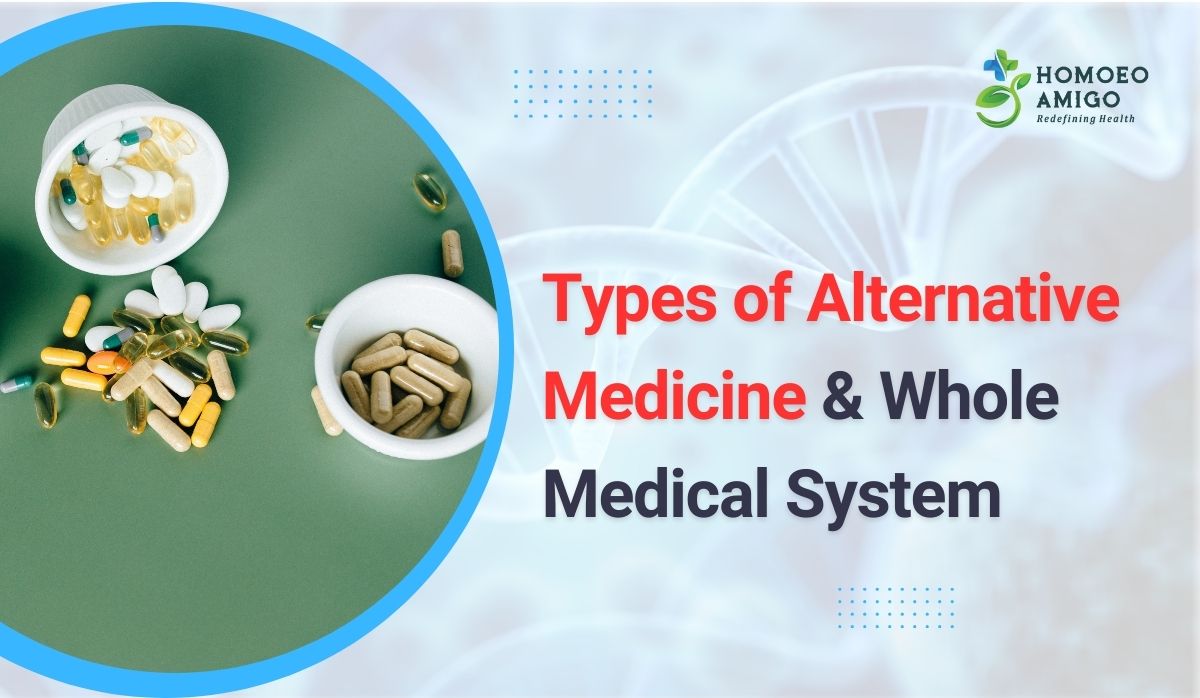Did you know that India boasts a unique distinction of having six recognized systems of medicine all falling under the umbrella of alternative medicine? These systems include Ayurveda, Siddha, Unani, Yoga, Naturopathy, and Homeopathy. While homeopathy arrived in India during the 18th century, it seamlessly integrated into Indian culture and evolved like any other traditional system, earning its place as part of the Indian Systems of Medicine.
In this blog, let’s explore these systems briefly.
Ayurveda System of Medicine
Ayurveda stands out among traditional Indian medicine systems because of its well-defined conceptual framework, which has remained consistent over time. Unlike other systems rooted in folk medicine, Ayurveda has evolved with a sophisticated understanding of health and disease, making it ahead of its time.
One important aspect that sets Ayurveda apart is its integrated approach to health. It was among the first medical systems to advocate for considering all aspects of an individual’s well-being, including physical, mental, and spiritual health.
Another distinguishing feature of Ayurveda is its philosophical foundation. Unlike other alternative medicine it primarily focus on the results of treatments, Ayurveda begins with a philosophical framework that guides therapeutic practices. This framework draws from Indian philosophies like Samkhya and Nyaya Vaisheshika, enriching Ayurveda’s understanding of the human body and its functions.
Yoga
The word “Yoga” originates from the Sanskrit term “yuj,” which translates to “to unite or integrate.” Yoga is centered around the union of an individual’s consciousness with the universal consciousness, serving as a comprehensive way of life. Maharishi Patanjali first outlined this system in a systematic manner in the Yogsutra.
Yoga comprises eight components: restraint (Yama), observance of austerity (Niyama), physical postures (Asana), breathing control (Pranayam), restraining of sense organs (Pratyahar), contemplation (Dharna), meditation (Dhyan), and deep meditation (Samadhi). These steps in the practice of Yoga hold the potential to enhance social and personal behavior, promote physical health, induce tranquility, and foster serenity of mind and spirit by improving circulation and restraining the senses.
Naturopathy
Naturopathy is a holistic approach to health rooted in various cultures, focusing on natural healing methods. It emphasizes living in harmony with nature and promotes non-pharmacological therapies using natural materials. Naturopathy aims to boost the body’s self-healing capacity and encourages a lifestyle that aligns with the principles of nature on physical, mental, social, and spiritual levels.
The focus of Naturopathy is not just on curing diseases or reducing symptoms but also on enhancing patients’ overall well-being by nurturing positive physical and psychosocial characteristics. This approach shifts from a disease-centered to a person-centered perspective, emphasizing strengths-based therapeutic relationships.
Unani system of medicine
The Unani System of Medicine originated in Greece and was further developed by Arabs into a sophisticated medical science, often referred to as Greco-Arab Medicine. It is based on the teachings of prominent figures like Buqrat (Hippocrates) and Jalinoos (Galen), who emphasized observation, experience, and rational principles in medical practice. These fundamentals remain relevant in modern medicine and science.
The World Health Organization (WHO) recognizes the Unani System of Medicine (USM) as an alternative system to address the healthcare needs of diverse populations. Unani Medicine, also known as Arab medicine, draws on ancient traditional systems from China, Egypt, India, Iraq, Persia, and Syria. It is widely practiced worldwide as part of the broader spectrum of alternative medicine, offering holistic approaches to health and well-being rooted in centuries-old wisdom and practices.
Siddha system of medicine
The Siddha system of medicine, primarily practiced in parts of South India, especially in Tamil Nadu, shares similarities with Ayurveda but maintains its distinct identity. This system is deeply rooted in Tamil civilization and is closely associated with the term “Siddhi,” which means achievement. Siddhars, the practitioners of this system, were revered for their supreme knowledge in medicine, yoga, and meditation.
This interaction between different medical traditions has led to the evolution and enrichment of the Siddha system, allowing it to offer unique approaches to healthcare. Today, Siddha medicine continues to play a significant role in South Indian culture and healthcare practices, preserving ancient knowledge while adapting to modern needs.
Sowa-Rigpa
Sowa-Rigpa, also known as Amchi’s medicine, is the traditional healing system of the Himalayan regions. Originating from India over 2500 years ago, it is deeply rooted in the Bodhi language, with “Sowa-Rigpa” translating to “Science of healing.” This ancient practice has played a crucial role in public health across various Asian countries, particularly in the Himalayan regions of Ladakh, Himachal Pradesh, Arunachal Pradesh, Sikkim, Darjeeling, and Tibetan settlements in India.
HOMEOPATHY
Homeopathy, codified by Dr. Christian Friedrich Samuel Hahnemann, emerged from observations made by physicians dating back to Hippocrates around 400 B.C. Hahnemann, a German physician, scientifically explored the phenomenon where certain substances could induce symptoms similar to those of a disease in healthy individuals. This exploration led to the fundamental principles of Homoeopathy.
Introduced to India around 1810 A.D. by European missionaries, Homoeopathy gained official recognition through a Resolution passed by the Constituent Assembly in 1948 and subsequently by Parliament. The first principle, “Similia Similibus Curentur,” suggests that a medicine capable of producing symptoms in healthy individuals can treat similar symptoms in those afflicted by the disease. The second principle emphasizes administering one medicine at a time to a patient during treatment, while the third principle advocates for the use of minimum doses to induce a curative effect without adverse reactions.


0 Comments